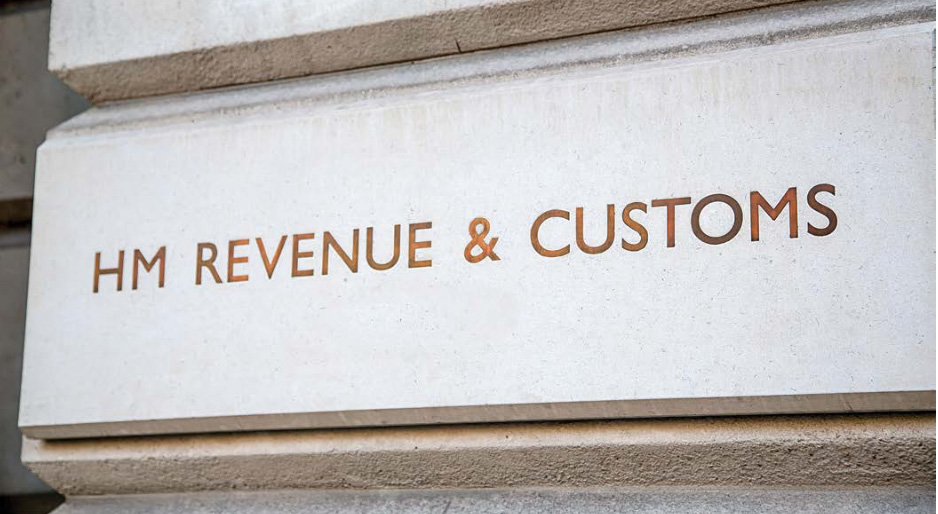The UK tax system can be both daunting and frustrating. There is much to deal with when relocating, but ignoring your personal tax position can be costly.

Over the years Goodman Jones has worked with many people coming to the UK. This guide gives an overview of some of the concepts that may be relevant to you and your family and suggests some tax planning opportunities that you may wish to explore further.
UK domestic rules
Your tax position in the UK is determined by two different concepts:
• Residence
• Domicile
Residence
Your residence will be determined by a series of tests, known collectively as the statutory residence test. This comes in 3 parts:
• Automatic UK tests
• Automatic overseas tests
• Sufficient ties tests
If you meet at least one of the UK tests and none of the overseas tests, then you will be UK resident. For example, if you spend 183 days or more in the UK (defined as being in the UK at midnight), then you will be UK resident. The automatic tests are applied in a specific order, so care must be taken.
If none of the automatic tests are met, then the sufficient ties tests provide a tie-breaker to determine residence. These look at the number of ties you have to the UK, for example whether you have accommodation available to you, or close family members who are UK resident. The number of ties then dictates how many days you can spend in the UK until you are considered UK resident.
Whether you are UK resident or not is of crucial importance when it comes to your UK tax position. It can be complex to work through the statutory residence test, so obtaining advice is recommended.
Whether you are UK resident or not is of crucial importance when it comes to your UK tax position
Domicile
Domicile is a concept of general law and is determined in a different way to residence.
Domicile of origin: An individual acquires a domicile of origin from their father at birth.
Domicile of choice: An individual can acquire a domicile of choice by settling in another country permanently and severing ties with the country of origin. It is difficult to establish a domicile of choice and very easy to unintentionally revert back to a domicile of origin.
Deemed domicile
Although domicile is a general law concept, it has been augmented by the tax law concept of deemed domicile. This applies to income tax, capital gains tax (CGT) and inheritance tax (IHT), and comes in two different forms:
Long term resident: An individual becomes deemed domiciled in the tax year after being UK resident for at least 15 of the previous 20 tax years and UK resident within one of the four tax years ending within the relevant tax year (IHT only). Note that you can be deemed domiciled even if not UK resident.
Formerly domiciled resident: An individual becomes deemed domiciled if they were born in the UK with a UK domicile of origin, and are resident in the UK for that tax year and in at least one of the two preceding tax years (IHT only).
Basis of taxation in the UK
Once you have established your tax status you then need to understand how you will be taxed in the UK. Spouses are taxed independently.
Non-UK resident
Non-UK residents are in general liable to UK income tax only on UK source income, and if you are also taxed on this in another country you should be able to claim double tax relief. Non-UK resident individuals are not liable to UK capital gains tax with some exceptions, notably UK residential property. Domicile is generally not relevant to non-residents.
This limited liability to UK tax for non-residents means that timing of entry to the UK should be considered. Remaining non-UK resident as long as possible may be advantageous, especially given the UK’s unusual tax year end of 5 April.
You may benefit by setting up a three bank account system before you come to the UK.
UK resident
In general, UK resident individuals are liable to UK income tax and CGT on their worldwide income and gains, known as the “arising basis”.
However, non-UK domiciled individuals can claim to use the “remittance basis”. You will still be liable to income tax and CGT on your UK income as this arises, but you will generally only be taxed on your foreign income and gains if they are remitted (brought or enjoyed) into the UK. However, what counts as a remittance is widely defined and advice should be sought.
Once you have been resident in the UK for 7 of the previous 9 tax years you must pay an annual charge of £30,000 to use the remittance basis. This charge increases to £50,000 once you have been UK resident for 12 of the previous 14 tax years. Use of the remittance basis is no longer available once you become deemed domiciled.

Bringing money to the UK
If you are non-domiciled you may incur a tax charge by bringing money into the UK that relates to income or gains which arose in the years in which you claimed the remittance basis. Money which arose before you become UK resident is known as “clean capital” and it generally will not incur a tax charge when remitted to the UK.
However, it is easy to taint clean capital, creating a “mixed fund”, and inadvertently incur a tax charge on bringing it to the UK. It is therefore important to segregate clean capital from other monies since becoming UK resident. You may benefit by setting up a three bank account system before you come to the UK – one for existing capital, another for income and a third for proceeds from capital disposals.
A common way for clean capital to become tainted is for an asset, which was purchased with clean capital, to be sold at a gain. This gain cannot be separated from the capital used to purchase the asset, therefore tainting the original capital. If the sale proceeds are brought into the UK, the gain is deemed to be remitted first therefore creating a tax charge.
It can therefore be advisable to dispose of assets which are standing at a gain before becoming UK resident in order avoid creating a mixed fund. The entire sale proceeds can then be remitted to the UK without a charge to UK tax.
Tax rates and allowances
Income tax
There are three tax rate bands, being a basic rate of 20%, a higher rate of 40% and an additional rate of 45% for those with income exceeding £150,000 in the 2021/22 tax year. There are slightly lower rates for dividends.
UK resident individuals are entitled to income tax allowances, which reduce your taxable income but are restricted in certain circumstances, such as claiming the remittance basis.
Capital gains tax
The rate of CGT is generally 20%, with a higher rate of 28% applying to UK residential property.
There is also an annual tax-free allowance which applies to capital gains realised. For 2021/22 it amounts to £12,300. However, this is lost for remittance basis users.
Tax registration in the UK

Although there are no specific tax forms for complete when you arrive in the UK, you will need to register to obtain a National Insurance number if you intend to work and also register if you need to complete a UK tax return.
Dispose of assets which are standing at a gain before becoming UK resident in order avoid creating a mixed fund.
Social security – National Insurance (“NI”) contributions
Broadly, people working in the UK make NI contributions to pay for certain state benefits, including the state pension, until they reach their normal retirement age. The top rate of NI for individuals is 12%. Employers make NI contributions at 13.8%.
If you are employed then your employer should collect your contributions from your salary. If you are self-employed then you pay your contributions through your tax return.
So that any contributions you make are allocated to you, you need a National Insurance number. This may have been allocated to you on application for a residence permit, but if not, you will need to obtain one by contacting Jobcentre Plus and setting up an appointment at one of their offices.
If you have been sent to the UK by your employer your position may be slightly different – you may be able to continue to pay social security contributions in your home country. This area can be quite complex and we would recommend you seek further advice.
UK tax return requirements
In the UK you are required to self-assess your tax liabilities. If you need to complete a UK tax return (e.g. because you are a director of a UK company, you want to claim the remittance basis or you have further tax to pay in the UK) you must complete form SA1 from HMRC.
The UK authorities have considered the practice of dual contracts to be suspect.
Income from employment
If you are taking up employment in the UK, either for a UK or an overseas employer, you should obtain advice on how you will be taxed in the UK, how the provision of any non-cash benefits may be taxed and whether you can claim any exemptions from income tax on your remuneration package because you are coming to the UK for a temporary secondment.
If you undertake employment duties in the UK and overseas, it is common to have different contracts of employment so that you can keep overseas income out of the UK tax regime. However, the UK authorities have considered the practice of dual contracts to be suspect and have tightened up the law relating to them in the past few years, so advice must be sought in this area. There is an alternative relief for the first three years of UK residency for single contracts.
Estate planning and inheritance tax (IHT)
IHT is payable on the value of your estate when you die and on certain gifts made during lifetime. Unless you are either actually or deemed domiciled in the UK it is only your UK sited assets that will be liable to IHT (broadly at 40%).
There are a number of planning techniques which may be available to you to mitigate your exposure to IHT and we would be happy to discuss these with you.
Buying your home in the UK
Historically, UK residential properties have been acquired through non-UK trusts or companies so that the UK home becomes a non-UK asset and does not form part of the UK estate chargeable to IHT. However, such planning is no longer effective for UK residential property and as such other alternatives should be considered depending on your personal circumstances.
Should you use an offshore trust/company for other assets?
Assets settled on offshore trusts may give you further flexibility to manage your assets overseas and determine when and if you may become liable to any CGT or IHT. Substantial anti-avoidance legislation has been developed over the years so you should seek specific advice before undertaking any planning.

Questions to ask yourself before relocating to the UK
- Have you determined your tax status in the UK? Will you be resident/domiciled in the UK
- Would you benefit from making a remittance basis claim? Should you consider structuring your offshore investments differently to mitigate any taxable remittances to the UK so that you can retain your personal allowances? Do you need to re-organise your bank accounts before coming to the UK?
- Will you be working whilst you are in the UK? Do you have a National Insurance number, or will you need to obtain one?
- Do you need advice on your National Insurance (social security) position?
- Will you need to complete UK tax returns? Have you registered with HMRC?
- Are you taking up employment in the UK? Have you sought advice on your UK tax position and how best to structure your remuneration package? Should you re- negotiate your employment contract?
- Are you intending to purchase a residential property in the UK? Have you considered how to structure this investment?
- Should you consider re-structuring your investments to ensure that you retain greater flexibility over your assets and their exposure to UK tax?
CGT rates have changed since this article was written and more up to date information can be found in our 2024 Spring Budget response.
The information in this article was correct at the date it was first published.
However it is of a generic nature and cannot constitute advice. Specific advice should be sought before any action taken.
If you would like to discuss how this applies to you, we would be delighted to talk to you. Please make contact with the author on the details shown below.








